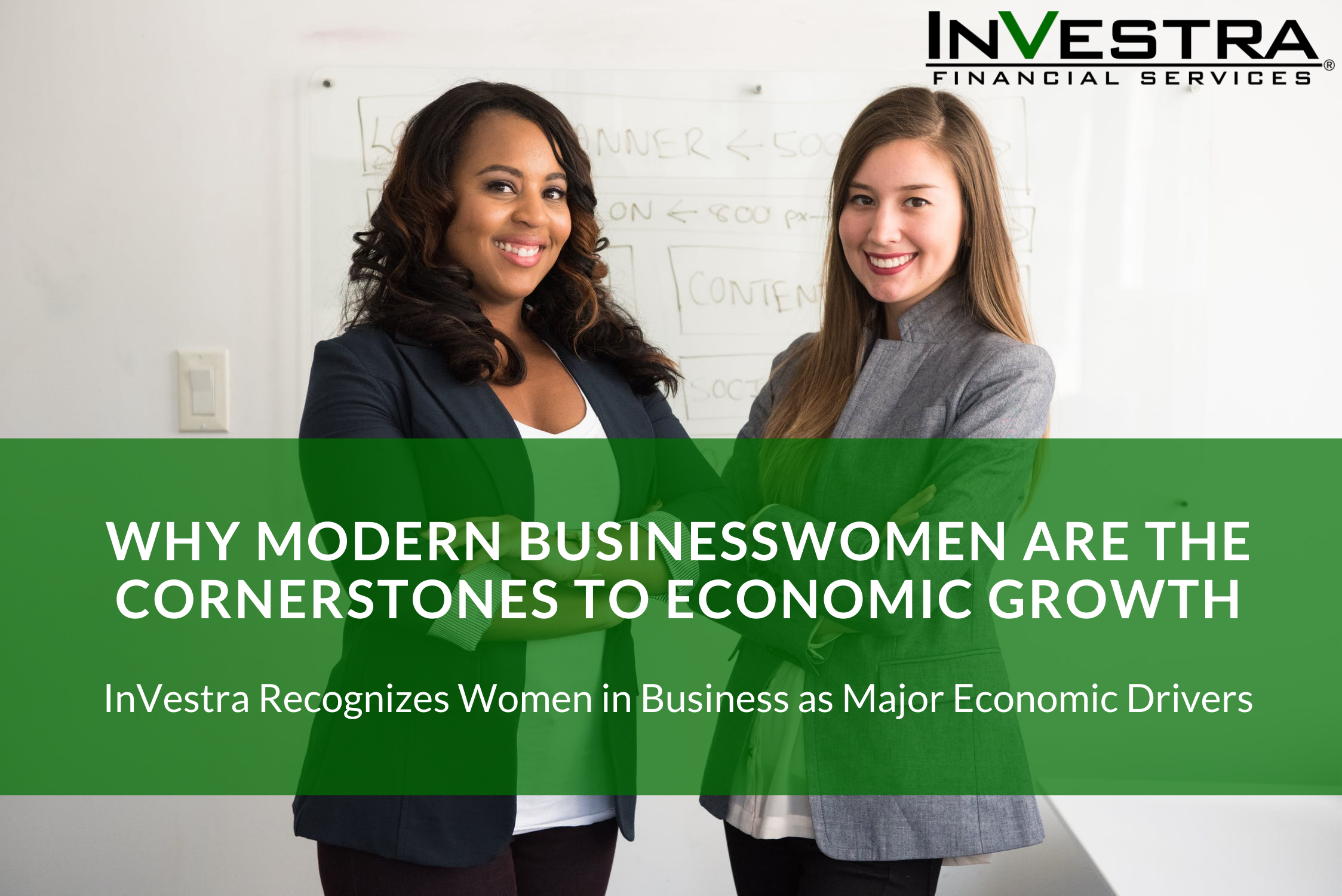March might have been International Women’s History Month, but our team here at InVestra is keen on highlighting the ever-increasing influence of modern businesswomen on economic growth as it pertains to business, innovation, and society as a whole every single day!
Thanks to the workings of capitalism and the free market, anyone can have the ability to chart their destiny according to their own likes. This is especially true for women in the United States, who collectively own 11.3 million businesses as of 2020 (that’s nearly 36 percent)[1] and are responsible for maintaining 23 million jobs and incurring an annual economic impact of over $3 trillion. According to a study by the National Women’s Business Council Center for Women’s Business Research, if women-owned businesses based in the United States were their own country, they would have the 5th largest GDP in the world, trailing closely behind Germany, and just ahead of France, The United Kingdom and Italy. [2] With these statistics in mind, matched with the fact that women-led companies perform twice as well as those led by men[3], it’s no question that businesswomen are now major contributors to the success of the overall economy regarding total revenues, income generated, and the amount of jobs created.
Female founders outperform males
A recent study from Boston Consulting Group revealed that for every dollar of investment raised, female-run startups generated 78 cents in revenue, while male-run startups generated only 31 cents, and the women outperformed their male counterparts despite raising less money ($935K versus $2.12M).[4] Because of this success, investors have been prone to seek to maximize their returns [on capital] by looking towards these businesses. A study by the Harvard Business Review in 2017 showed that on average female founded companies create over 60 percent more value for investors than those founded by men.[5] The face of entrepreneurship is evolving to include all women, regardless of demographics. Even more impressive is that women are starting businesses on their own terms – whether it be their full-time focus or a part-time activity,” Courtney Kelso, a senior vice-president of American Express said. “The economic impact of women-owned businesses is undeniable, from the trillions they contribute via revenue to the millions of jobs they provide.”
Female founders are less motivated by money and more likely to prioritize corporate social responsibility
American entrepreneurs have a multitude of motivations for starting businesses, but research shows that these motivations differ greatly amongst genders. According to research by Illuminate Ventures, males are nearly nine times more likely to be driven by financial gain than their female counterparts. It’s no doubt that when leaders are motivated by money, they’re more inclined to make decisions that aren’t in the best long term interest of the company. Successful entrepreneurs have the desire to create something meaningful and to have a positive impact on society- to make it a better place. When business-owners are intrinsically motivated (as opposed to financially) they’re more likely to persevere and do whatever they have to in order to maximize the long-term prospects of their business. It also might come as little surprise that companies with women on their corporate boards are significantly more focused on social and environmental issues than those with no female board members. In today’s economy, it’s become increasingly common for consumers to buy a product or service based on a company’s espousal of a social matter, because individuals want corporations to take a stance on social and environmental change. Plus, businesses are partly assessed according to their ethical standards.
What About the Future?
Approximately half of women-owned businesses are concentrated in three industries: professional/ scientific/technical services (lawyers, scientific, architects, consultants); health care and social assistance (child day care and home healthcare services), and other services (such as hair/nail salons and pet care). Some or all these industries will rebound once the crisis recedes. As the economy returns to growth, the need for professional services such as legal or consultant expertise will increase. An opening up of the economy, an aging population, and a return to work should revive demand for these types of services and the emerging companies could represent good investment opportunities. As people go back to work away from home, the need for childcare and other services will rise and elective surgeries and other non-essential health care services will be in demand again.
Across the board, people are looking increasingly at social enterprises, i.e. businesses that are designed to have both a particular focus on the triple-bottom-line as vehicles for providing solutions to the major social and economic challenges facing society. By providing social benefits as well as well-paying jobs, social enterprises offer the potential for rebuilding communities that are stronger than they were before the recession. Social enterprises run by women understand their target markets especially well and are well positioned to build successful social enterprises while the economy continues to recover.
[1] https://www.cnbc.com/2017/02/28/why-women-entrepreneurs-will-be-economic-force-to-reckon-with-in-2017.html
[2] https://cdn.ymaws.com/www.wipp.org/resource/resmgr/issues/econimpactreport-final.pdf
[3] https://www.forbes.com/sites/falonfatemi/2019/03/29/the-value-of-investing-in-female-founders/?sh=32fc0315ee4d
[4] https://illuminate.com/wp-content/uploads/2018/07/Gender-Differences-in-Entrepreneurship-Paper-a.pdf
[5] https://hbr.org/2017/09/the-comprehensive-case-for-investing-more-vc-money-in-women-led-startups
LPL Tracking | #1-05109060






